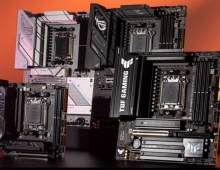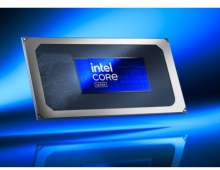
Intel Capital Invests in Cover Analytics, EDA, IC Design, More
Intel Capital announced a new round of investment in technology startups, this time distributing $132 million among 11 technology startups.
The company said that this round it “focused on artificial intelligence (AI), autonomous computing, and IC design.”
This round of companies included 7 from the United States, 3 from China, and 1 from Israel.
This year the cluster of themed investments is Anodot, Astera Labs, and Retrace. Intel Capital describes Anodot as a company that uses machine learning (ML) to perform autonomous business monitoring. Hypersonix has developed an autonomous, AI-based analytics platform designed for consumer industries such as retail, restaurants, hospitality, and ecommerce. Retrace has developed a predictive analytics platform that also uses AI in real-time data to improve dental decision-making.
Founded in 2018, Hypersonix has built a platform that pulls in and analyzes a variety of metrics, also ranging in type and from disparate sources, from regional business performance numbers to web traffic statistics, for example.
Retrace’s system does with dental records what Anodot and Hypersonix do with business metrics. Retrace says its system is designed to be secure against cyberattacks.
Another noteworthy investment is Astera Labs, a fabless semiconductor company that develops “purpose-built connectivity solutions for data-centric systems to remove performance bottlenecks in compute-intensive workloads such as artificial intelligence and machine learning.” Intel Capital goes on to say that Astera has developed “system-aware ICs, boards and services to enable robust connectivity for PCI Express (PCIe) and Compute Express Link (CXL) solutions.”
Another notable 2020 Intel Capital investment is MemVerge, a software company “founded on the vision that every application should run in memory.” That would necessitate what the company calls giant, petabyte-scale “pools” of a combination of DRAM and persistent memory. MemVerge has developed software it calls the Memory Machine, which essentially manages these pools.
The other companies that Intel Capital invested in are:
- Axonne, which specializes in Ethernet connectivity solutions for the automotive market;
- KFBIO, a biotech company that builds digital pathology systems meant to be upgrades to traditional microscopes;
- Lilt, which has developed AI-based language translation software and services;
- ProPlus Electronics, an electronic design automation (EDA) company in China that specializes in advanced device modeling and fast circuit simulation solutions;
- Spectrum Materials, which Intel Capital described as a high-purity specialty gas and material supplier for semiconductor fabs; and
- Xsight Labs, which develops chipsets designed to accelerate data center workloads such as machine learning, data analytics and disaggregated storage.
Notice that Intel Capital is investing in two Chinesese companies.
ProPlus, one the Chinese startups Intel Capital has funded, makes EDA software that chip makers use to design their products before manufacturing them.
ProPlus Chairman and CEO Zhihong Liu once worked as a VP at Cadence Technologies while its director, Chenming Hu, once served as the CTO of Taiwan Semiconductor Manufacturing Co Ltd (TSMC).
Spectrum Materials, based in the southern Chinese province of Fujian, makes gases critical for semiconductor fabs to produce physical chips. The sector is typically dominated by players in the United States, South Korea, and Japan.
Intel Capital said it invested $466 million in 36 new investments and 35 follow-on investments in 2019.





















